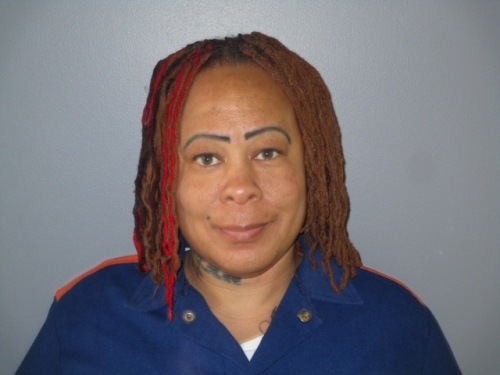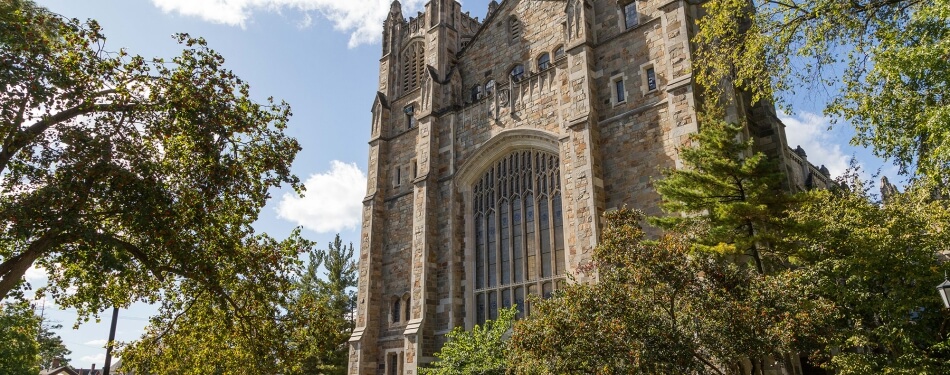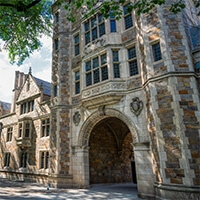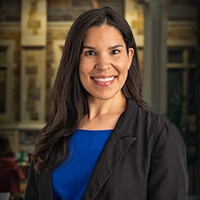The Michigan Supreme Court has overturned the 2006 conviction of Milton “Chazlee” Lemons in the 2005 death of her infant daughter—an alleged case of shaken baby syndrome—and granted her a new trial. The Michigan Innocence Clinic has been representing Lemons since 2015.
“We are thrilled that after nearly a decade of litigation, Chazlee Lemons will finally be receiving a new trial,” said Dave Moran, ’91, clinical professor of law and co-founder of the Michigan Innocence Clinic, who retired from the clinic days after the decision was handed down.
“When she was convicted, shaken baby syndrome (SBS) was thought to be an almost incontrovertible diagnosis,” Moran continued. “Even though numerous medical and lay witnesses testified that Nakita Lemons appeared to be choking on formula when she stopped breathing, no one countered the testimony of the State’s pathologist that she had actually been shaken to death. Years later, that same pathologist changed his mind in light of all of the challenges to SBS, and we presented five new witnesses who agreed Nakita’s symptoms were consistent with choking. Finally, a new jury will get to hear all of the evidence supporting Chazlee’s innocence.”
A trial, a conviction, and new evidence deemed inadmissible

Lemons was alone at home with her infant daughter, Nakita, and Nakita’s brother when Nakita began choking. Nakita died in a hospital the following day. Lemons was arrested and told a police detective that she had noticed that Nakita was not breathing when she went into her room to check on her after putting her to bed. Lemons further stated that she may have shaken Nakita too hard while trying to wake her.
The detective informed Lemons that Nakita’s autopsy results indicated that Nakita had died as a result of shaking, at which point Lemons wrote and signed a statement claiming that she had shaken Nakita three or four times to get her to stop crying, after which she became unresponsive.
Lemons was charged with first-degree felony murder, convicted, and sentenced to life in prison without the possibility of parole.
In 2017, Lemons, represented by the Michigan Innocence Clinic, filed a successive motion for relief from judgment on the basis that new evidence undermined the prosecution’s theory that Nakita had died because she was shaken. Several expert witnesses stated that Nakita’s death was not caused by SBS, including a pediatrician, a forensic pathologist, a pediatric radiologist, and a biomechanical engineering expert—who said that shaking couldn’t produce Nikita’s alleged injuries without also causing significant neck injuries.
In addition, the medical examiner—who performed Nakita’s autopsy and testified for the prosecution at the bench trial—testified at the evidentiary hearing that his professional opinion as to the cause of death had changed to “indeterminate” and that he no longer believed that Nakita’s injuries necessarily indicated abuse.
The trial court denied the motion for relief from judgment on the basis that all of the proposed evidence was inadmissible.
“The trial judge basically took the position that anyone who challenged SBS, even including the medical examiner who testified for the prosecution at trial, must have a ‘fringe’ opinion and should therefore be excluded under Daubert,” Moran explained, referencing the standard by which a trial court judge assesses the reliability and relevance of expert witness testimony before it is presented to a jury.
“The Court of Appeals agreed with us that the trial judge went too far but did rule that the judge was right to exclude our biomechanics expert because his experiments used crash-test dummies instead of real children. The Court of Appeals ultimately affirmed the denial on the ground that none of the scientific evidence mattered given that the police were able to get Chazlee, whose daughter had just died, to sign a confession,” Moran said.
The Michigan Supreme Court weighs in
Lemons, continuing to be represented by the Michigan Innocence Clinic, appealed the decision to the Michigan Supreme Court. On July 25, 2024, the Court held that the trial court abused its discretion by deeming Lemons’s proposed expert testimony inadmissible and remanded the case for a new trial.
The 5-2 ruling held that Lemons should be able to present testimony that Nakita’s injuries were not consistent with abusive shaking and the theory that Nakita died from choking. In addition, the ruling noted, “suspects presented with seemingly incontrovertible physical evidence of their guilt may confess falsely to ameliorate their current conditions.”
The Court noted, “The Court of Appeals relied heavily on defendant’s confession in rejecting the claim for relief. But if a fact-finder believes defendant’s expert’s testimony that SBS does not occur without accompanying catastrophic neck injury, a jury could conclude that defendant’s confession was false and precipitated by factors and motivations other than guilt. Defendant presented enough evidence to conclude that a different result would be probable on retrial.”
Chazlee will now be represented on retrial by Gabi Silver, a prominent Detroit criminal defense lawyer. The Michigan Innocence Clinic will serve as co-counsel.
Since its founding in 2009, the Michigan Innocence Clinic has freed 43 people who were serving sentences for crimes they didn’t commit. Four of those cases overturned SBS convictions.







